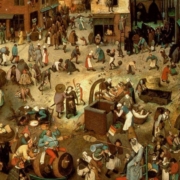Underpinnings of the therapeutic community: individual/group dialectic, between clinical organisation and daily life
Abstract
This contribution offers a general overview that departs, above all, from a relationship with the Mito&Realtà network, and describes the underpinning of the community architecture, highlighting the basic arrangement and internal articulations that work together to achieve the clinical, rehabilitative and social aims that form its mission. The TC is presented as a complex organism and course of treatment defined in space and time, and that develops from an initial moment of reception (trial period, assessment process and rehabilitative therapeutic contract), into individual, group interventions (assemblies, meetings, various group typologies) and interventions with families, a phase of insertion, attachment and start of detachment from the social network. Great importance is Read more

